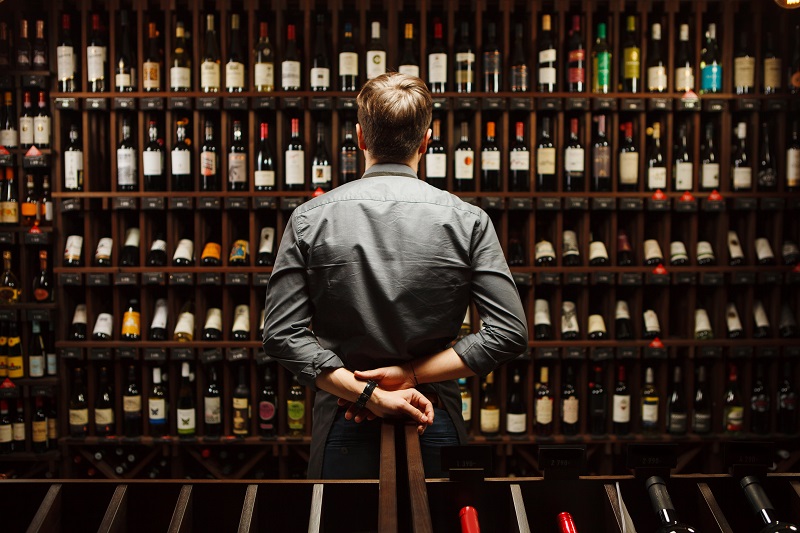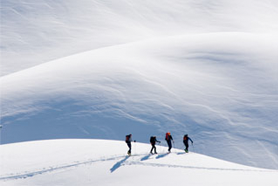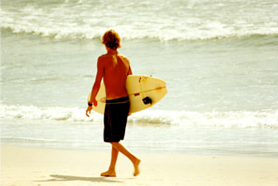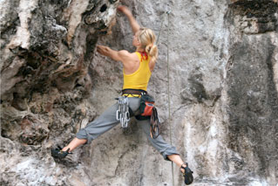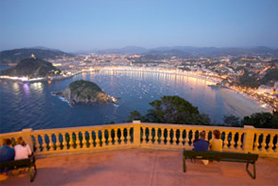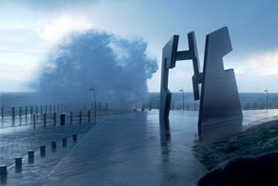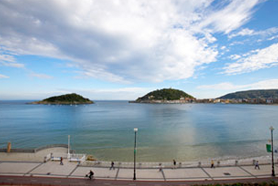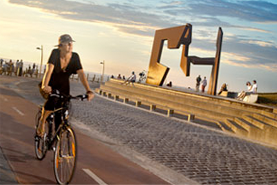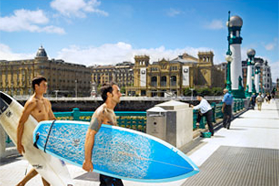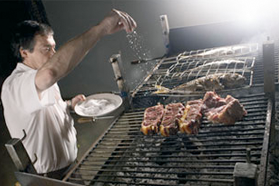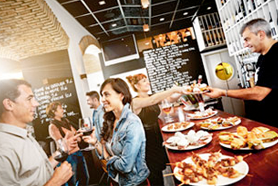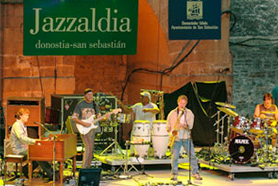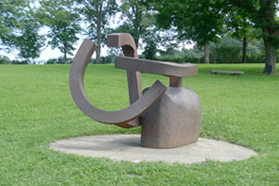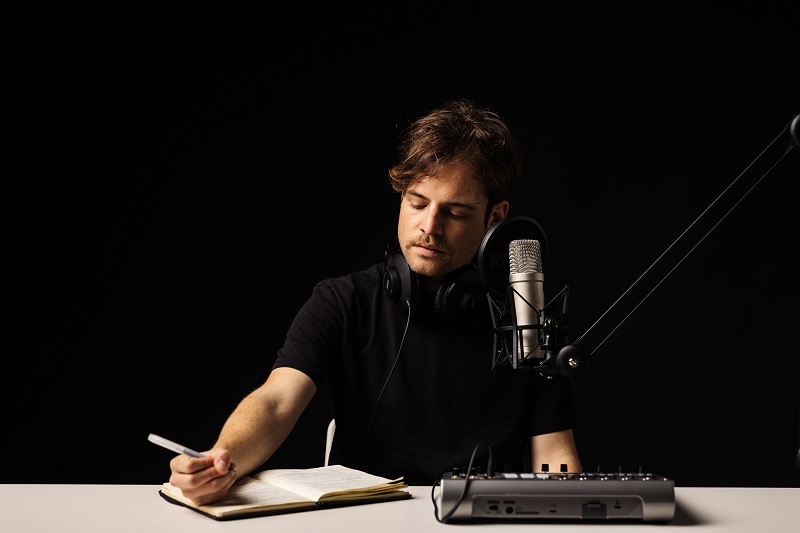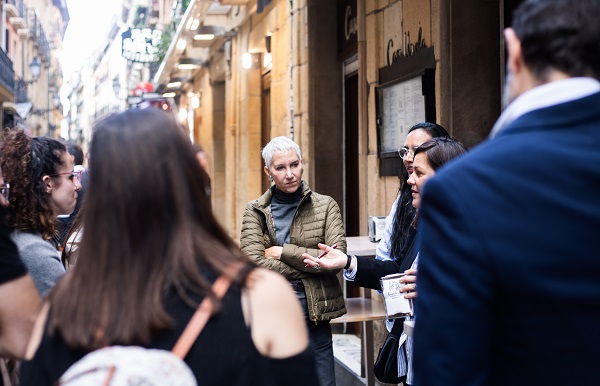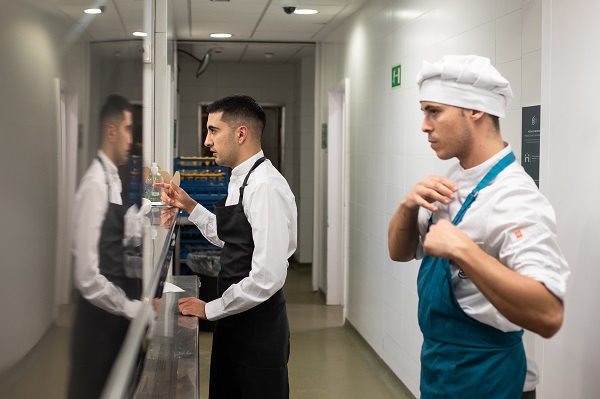Gain a 360º perspective on the world of wine.
They say love moves us, coffee propels us, and wine saves us. There are different kinds of wine too. Whites with the soul of reds, pink bubbles, and stories behind each bottle. Tales filled with excitement and passion, but also strategy, knowledge, and discipline. This Master's program aims to provide a comprehensive understanding of all aspects of the wine sector or, more precisely, the liquid art.
During the master's, students will explore the technical language characteristic of areas such as oenology and wine tasting, while also gaining knowledge in sommelier skills and wine pairings. They will also specialize in topics related to marketing, promotion, distribution, and wine export.
Our goal is to provide all the necessary tools and resources for students to develop their professional careers in the area that interests them most within the wine sector, whether it's in a winery, sales and distribution, the restaurant industry, or the world of wine tourism. Everything adds up, nurtures, and should be shared.
Practical information
Start date: january, 2025
Number of credits: 60 ECTS
Campus-Based Learning at Basque Culinary Center
Duration: 9 months in total
6 months of on-site training (january to june 2025)
3 months of external internships (july to october 2025)
Schedule
Monday to Thursday from 15:00 to 20:00h (CEST)
20 spots available
Master's program offered by MONDRAGON UNIBERTSITATEA and delivered by the Faculty of Gastronomic Sciences at Basque Culinary Center
For inquiries and more information, please contact cursos@bculinary.com
Master'S Objectives
Understand the value chain of wine, from the vineyard to the consumer, including the processes of production, aging, marketing, and distribution.
Identify and characterize the main types of wines, spirits, liquors, and other beverages, as well as the most relevant production regions worldwide.
Develop the sensory skills required to conduct professional tastings of wines and other beverages.
Manage all processes and services related to the wine and beverage sector in a restaurant, from designing the offering and managing the wine cellar to developing sales techniques in the restaurant and gourmet food pairings.
Acquire the necessary knowledge to analyze markets and establish marketing strategies and promotional activities in the world of wine, both in the domestic and international markets.
Career Opportunities
We know that professional opportunities can vary depending on geographical location and individual preferences of the students; however, with this program, participants can take on roles and functions in the following positions and fields:
Wineries:
Technical-commercial and marketing area (national and export).
Communication and consultancy.
Institutional organizations:
Related to the production and promotion of the world of wine and gastronomy (Designations of Origin, interprofessional associations, consortia, etc.).
Distribution sector:
Purchasing manager.
Professional customer relations.
Organization of tastings and events management.
Wine shops.
Online sales.
Distribution to professionals.
Restaurant sector
Wine expert.
Gourmet pairings.
Sommelier.
Entrepreneurship:
In the enogastronomy sector.
Wine tourism.
Listen to our students
10+1 Reasons
Reasons why you should do this master’s degree
1
You will acquire a solid foundation of knowledge about wine and its tasting, developing your sensory skills to construct assertive judgment.
2
You will gain a multidisciplinary perspective with knowledge of wine marketing, sommelier expertise, and gastronomy.
3
You will become familiar with the world's major wines, as well as spirits and other liquors.
4
You will master the fundamentals of the wine market and its commercialization, as well as sales techniques and language, with a particular focus on the international market.
5
You will understand the evolution that the world of wine has undergone in recent years and what has made it a fundamental ingredient in gastronomy.
6
You will participate in a learning plan that includes tastings, study trips, a master's thesis project, and internships in companies.
7
You will receive masterclasses, business cases, tastings, and seminars led by renowned winemakers, sommeliers, and wine marketing experts.
8
You will embark on learning trips to regions with a rich wine tradition, such as La Rioja, Jerez, Cava, Navarra, and Txakoli.
9
You will immerse in cutting-edge facilities adapted to continue providing a transformative, innovative, and experiential learning experience.
10
You will be part of Basque Culinary Center, a Faculty of Gastronomic Sciences with international recognition and the support of the most influential professionals in the industry.
Directed to
The Master's program is aimed at individuals with the following profiles:
University graduates or holders of degrees in Vocational Training in fields ranging from Business and Tourism to Gastronomy, Agricultural Engineering, Communication, Humanities, Sommelier, among others.
Graduates in marketing, distribution, or sales in companies related to the wine industry seeking specialized training.
Individuals aspiring to develop their careers in the wine sector with existing experience in marketing, distribution, or sales in other industries.
Hospitality professionals with solid experience looking for a career change to advance professionally.
Individuals coming from families involved in the wine business looking to expand their knowledge to contribute to the family business.
Professionals with experience in oenology who want to explore other aspects, such as marketing, sales, or gastronomy, within the wine context.
Professionals with a background and/or experience in marketing departments looking to pivot toward the wine sector.
Professionals seeking an opportunity to reinvent themselves in the wine industry and require specific training.
Language Requirements:
A good command of English will be positively evaluated.
If you don't see your profile reflected in the above points but are interested in the Master's program, don't hesitate to apply. We will consider your education and experience and get in touch with you.
Programme
The Master's Degree study programme gives students overall competencies, supplemented with a period of work placement during which the final project is prepared.
Module 1: Wine and Other Beverages (14 ECTS)
Viticulture and Soil Science History of the vine.
- Plant morphology.
- Factors influencing grape quality and production.
- Soils and climate.
- Vegetative cycle and plant health.
- Vineyard work.
- Harvest.
- Grape constitution and biochemistry.
Sensory Analysis
- Definition, parameters of wine quality.
- Sensory analysis techniques: from classical to cutting-edge methodologies.
- Senses involved.
- Specific tasting vocabulary.
Winemaking
- The winery: winemaking equipment.
- Production processes for different wine styles.
- Microbiology.
- Fermentation and wine transformation processes.
- Winemaking: white, red, rosé, sparkling, fortified, and sweet wines.
- Clarification, filtration, and wine stabilization.
- New trends in winemaking: natural, biodynamic, organic, vegan, etc.
- Wine aging: barrels, concrete tanks, clay amphorae, and other materials.
- Different types of oak.
- New bottle closures and packaging.
- Defects in wine production and preservation.
English for Viticulture and Sensory Analysis
Specific vocabulary related to vineyards, the winemaking process, and wine tasting.
National and International Geography
- European regulations.
- Classification of production zones: Wines with Designation of Origin (PDO and PGI) and without origin indication.
- Adaptation of the regulations to different EU wine-producing countries.
- Comprehensive knowledge of Spanish wine geography: wine regions, grape varieties, wine styles, climatic and soil factors, primary terroirs.
- Major wine-producing countries in Europe: France, Italy, Portugal, Germany, Austria, and Hungary.
- Relevant wine regions, primary grape varieties, and most important styles.
- New World Wines.
Other Alcoholic Beverages
- Beer: ingredients, production, types, and current trends.
- Cider: production, types, styles, and current trends.
- Sake: production and types.
- The distillation process: major spirits and brandies.
- Countries of origin.
Module 2: Sommelier, Gastronomy, and Pairing (6 ECTS)
History of Wine as a Fundamental Element in Gastronomy
- Gastronomic culture related to the world of wine.
The sommelier as a relevant figure in the restaurant industry.
- The tasks of a sommelier.
- How to present and sell wine.
- Service techniques: decanting, aeration, new service trends. Sommelier tools: glasses, corkscrews, Coravin, etc.
- Learning how to choose the most appropriate ones.
- Using other products in sommelier work; coffee, sake, cider, beer, oils, etc.
- Knowledge of grape distillates and other raw materials.
- Introduction to Mixology. Traditional cocktail-making and current cocktail trends.
Wine Pairing.
- Current Theories and Techniques How to pair wines according to different methodologies.
- Seeking synergies with high-quality gastronomic products such as Iberian ham, cheeses, duck products, and desserts.
- Pairing options: by dish, for a complete menu.
Cellar Management and Wine List Design for a Specific Establishment
- Effective cellar management for various restaurant styles.
- How to sell wine through a well-structured wine list.
Module 3: Wine Marketing and Communication (9 ECTS)
Market Analysis and Wine Consumers Worldwide
- Trends in the Spanish and international markets.
- Market analysis and foreign trade management.
- Consumer analysis: qualitative and quantitative techniques.
- Internal winery analysis.
Strategic Marketing
- Defining vision, mission, and values.
- Strategic roles of a winery.
- Consumer segmentation, targeting, and positioning.
- Defining the value proposition.
- Marketing objectives.
Marketing Mix
- Product design and experiences: brand and branding.
- Defining pricing strategy.
- Selecting sales channels: supermarkets, specialty stores, and omnichannel.
- Promoting wine: digital marketing, public relations, trade fairs, communication, and others.
- Wine Tourism as a Business Unit.
Evaluation
- Defining KPI indicators.
- Budgeting and scheduling.
Master's thesis
You will develop a supervised project throughout the learning process, which you will submit one week after the end of in-person classes. The project will consist of:
Developing a marketing plan for a real or fictitious product or company.
Contextualizing a wine based on its region of origin, grape variety, and production process, as well as its gastronomic and service applications.
Curricular Internship
After completing the academic period, you will put into practice everything you have learned over three months and gain real-life experiences in national or international companies and institutions related to the wine industry.
The Faculty of Gastronomic Sciences has collaboration agreements with over 700 companies in the wine, restaurant, and tourism sectors. You will be able to carry out internships in:
Wineries: wine tourism, marketing, or export.
Wine distributors.
Specialized wine shops.
Institutions related to the wine world.
Restaurants where the wine list and pairings are key to the gastronomic offering.
External internships are an excellent opportunity to apply what you have learned during the course and acquire new professional skills. If you prefer, you can request credit for them by providing evidence of your professional experience.
Calendar
Total Duration: 9 months
Number of credits: 60 ECTS
Academic Period: january to june , 2025
Schedule: monday to thursday from 15:00 to 20:00h (CEST)
Curricular Internships: july to october 2025 (3 months)
Methodology
The Master's program is delivered using the "learning by doing" methodology, which is based on the idea that the best way to learn is through practical experience and direct action. Instead of focusing solely on theory and passive instruction, this methodology promotes students acquiring knowledge and skills by actively participating in practical activities and real projects.
The teaching and learning process is based on the following dynamics:
Learning sessions in which the concepts and content of each module of the training program will be worked on.
Practical case studies led by experts and master's program professors that allow for group dynamics, debates, and reflections.
Masterclasses with over 40 invited experts in the fields of wine, marketing, and gastronomy, who will provide firsthand experiences and knowledge of the industry.
Wine tasting workshops, where you will have the opportunity to taste over 400 references from around the world.
Tastings, pairings, and other culinary activities guided by professors and guest experts that will help you consolidate the knowledge acquired.
Knowledge activation activities: readings, exercises, etc.
Learning journeys to four renowned wine regions, where you will gain a global perspective on the exciting wine sector. You will visit the most prestigious wineries to experience firsthand a range of experiences, from the most traditional to the most innovative. Some of the wine destinations visited in previous editions include Navarra, Jerez, a region unique in the world for the singularity of the wines produced there, Rioja, Txakoli, Burdeos, and Cava.
Teachers and guests
Learn from Industry Experts with Experience!
Students will have the opportunity to learn from accomplished professionals in the field, recognized for their academic, intellectual, and social influence, as well as their impactful contributions. The program features a panel of instructors composed of seasoned culinary experts with specialized knowledge in the field of Gastronomy.
Master's coordinator
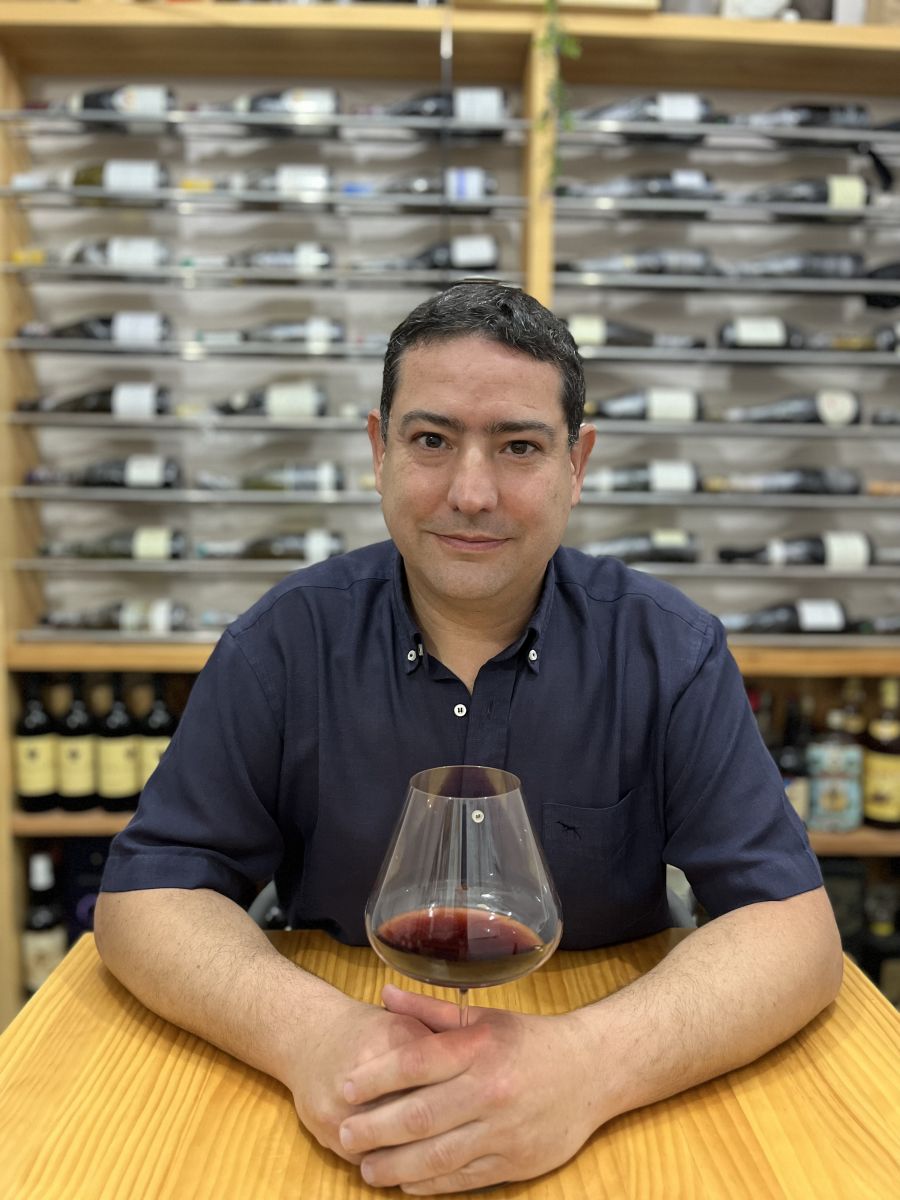
Dani Corman
Master's coordinator
Dani is the Coordinator of the Master's program in Wine Tasting and Enomarketing. He holds a Master's in Enology and Viticulture from the International Social Science Council and a Master's in Wine Production from the European School of Arts. He is a professor of Wine Tasting in the Culinary Science degree program at the Basque Culinary Center, as well as in other educational institutions. Dani is an Ambassador of Champagne in Spain and a trainer for the Champagne Bureau. He also serves as an advisor to wine distributors, hospitality establishments, and wineries nationwide. He is the owner and manager of ESSENCIA wine, a space dedicated to authentic and distinctive wines.
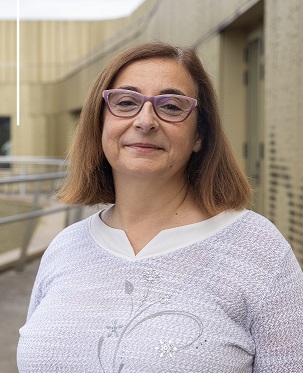
Koro Santos
Master's coordinator
Koro is the Coordinator of the Department of Restaurant and Sommelier at the Basque Culinary Center. She holds a degree in Psychology and is linked to the world of Restaurant Service and Sommelier with over 15 years of teaching experience. She is a certified trainer in Sherry and Cava wines and holds a WSET Level 3 qualification.
Expert collaborators
Colaborador experto
Enólogo y propietario de Bodegas Gramona. Experto en vinos espumosos, materia de la que es profesor universitario.
Colaborador experto
Sumiller, “Drinks Manager” de El Bulli Foundation, formador y redactor en www.jancisrobinson.com
Profesora experta
Coordinadora técnica del Máster en Innovación y Gestión de Restaurantes. Doctora, Mención Internacional en Business Administration, MBA Executive y Master en Marketing por la Universidad del País Vasco. Adela es en la actualidad Research Fellow en la Universidad de Oxford. Con formación en Coaching en la Universidad de Nueva York y la Universidad de Stanford, es investigadora en áreas de turismo y gestión, formadora para empresas internacionales y nacionales, mentora para emprendedores en Silicon Valley y profesora invitada en varias Universidades en diversos países como Alemania, Francia, China, Reino Unido y Suiza.
Fees / Grants
The total cost of the Master's program is €10,700, which will be paid as follows:
€150 upon application (fully refundable in case of non-admission).
25% of the total, €2.745 upon admission confirmation as a reservation fee.
The remaining amount to be paid in 3 installments of €2.745 in January, March, and May 2024.
The program price includes:
Academic materials.
Learning journeys (transport, visits, accommodation, and breakfast).
Seminars and masterclasses with guest experts.
Management of curricular internships.
Issuance and delivery of the diploma.
Access to over 5,000 references from the Faculty's library.
Graduation ceremony.
Enrollment in the Basque Culinary Center alumni service: Bculinary Alumni.
Admission
Basque Culinary Center has an admissions system aimed at ensuring that our students have the academic level and personal competencies necessary to successfully complete an innovative and demanding curriculum. After completing the application process, the Admissions Committee will select the admitted candidates.
-
Interested individuals must complete the online registration and upload a copy of their valid ID/NIE or passport for the registration to be validated. Regular registration will be available starting from December 2023.
-
In addition to completing the online registration, you must send the following scanned documentation to admisiones@bculinary.com:
ACADEMIC DOCUMENTATION:
STUDENTS CURRENTLY ENROLLED IN THE FINAL YEAR OF A BACHELOR'S DEGREE:
• Academic transcript showing all grades earned to date.
STUDENTS WITH PREVIOUS UNIVERSITY STUDIES COMPLETED IN SPAIN:
• Certified photocopy of the degree or certificate from the university confirming that the studies have been completed.
STUDENTS WITH PREVIOUS UNIVERSITY STUDIES COMPLETED IN A MEMBER COUNTRY OF THE EUROPEAN UNION, NORWAY, ICELAND, LIECHTENSTEIN, AND SWITZERLAND:
• SET (European Diploma Supplement) or, if not available, Certification from the home university confirming that the student is eligible to pursue Master's studies.
STUDENTS WITH PREVIOUS UNIVERSITY STUDIES COMPLETED IN A COUNTRY OUTSIDE OF THE EUROPEAN UNION, NORWAY, ICELAND, LIECHTENSTEIN, AND SWITZERLAND:
• Certification from the home university confirming that the student is eligible to pursue Master's studies. This certification must be apostilled or, in the case of countries that have not signed the Hague Convention No. 12 of October 5, 1961, legalized through consular or diplomatic channels.
LANGUAGE PROFICIENCY CERTIFICATION:
• Students whose native language is not English must provide official certification demonstrating that they have an English language proficiency level equal to or higher than B2 (Common European Framework of Reference for Languages, CEFR).
ADDITIONAL DOCUMENTATION:
In addition to the aforementioned documentation, all registrants must also submit:
• Updated CV.
• Motivation letter for enrolling in the training program.
-
A personal interview will be conducted to assess the suitability of the candidate based on their motivation and learning objectives.
-
Admitted students will be required to pay a reservation fee of €1,000.
It is important to note that:
• The application deadline will remain open until all slots are filled. The maximum number of admitted students will be 20.
• In the case of international students, the enrollment certificate required for visa processing will be provided once the reservation fee is received.
For any queries or further information, please contact admisiones@bculinary.com
Student service
Accommodation

LIVENSA LIVING SAN SEBASTIÁN, AN INNOVATIVE CONCEPT OF LODGING
Livensa Living San Sebastian is located in the neighborhood of Ibaeta, in a quiet area and a step away from Tolosa Avenue that leads to Ondarreta beach. It is an accommodation that takes care of all the details and is designed to make you feel at home during your stay in Donostia-San Sebastian. It has spaces to relax and share time in company.
Features to highlight:
- Single rooms with full kitchen and private bathroom
- Laundry
- Gym
- Common kitchens or "txokos".
- Leisure areas: living room, games room, cinema room, etc.
- Music rehearsal rooms
- Co-working spaces
- Private parking
Take advantage of the preferential rates for Basque Culinary Center students.
More information about accommodation here
Other accommodation options
Religious residences
These types of residence are small and have restricted entrance times. The rooms can be single or double and they do not always have an ensuite bathroom. Those that offer full board may not offer all the meals at weekends. Admission to these residences entails a personal interview with the families. The prices given below are approximate.
Female residences
Residencia Compañía de María
Camino de S. Bartolomé, 24. Tel 943 464795. Regimen full board Precio aproximado €625/month
Esclavas del Sagrado Corazón
Avda. Gral. Zumalakarregi, 11. Tel 943 210800. Regimen full board Precio aproximado €580-€615/month Residents must leave the residence at weekends with the exception of examination periods.
Misioneras del Sagrado Corazón
Paseo de la Fe, 34. Tel 943 456072. Regimen full board Precio aproximado €350-€490
Residencia Villa Alaidi E.A.M.
Paseo de Heriz, 95. Tel 943 210866. Regimen half board or full board Precio aproximado from €450 to €590/month No se ofrecen comidas durante el fin de semana aunque hay una cocina a disposición de las residentes.
Residencia el Carmelo Pasión
Ilumbe, 8. Tel 943 456600. Regimen full board Precio aproximado €540-€605/month
Colegio Mayor Jaizkibel
C/ Aldapeta, 49. Tel 616 369 815. Regimen Pensión completa. Precio aproximado 932€/mes. No hay cocinas disponibles para las residentes pero las estudiantes de BCC podrán realizar prácticas de cocina.
Residencia Cet Oria
Paseo de Ayete, 25. Tel 943 242400. Regimen pensión completa. Precio aproximado 370€. El precio del alojamiento y pensión se costea trabajando en el servicio de alimentación. Admisión mediante entrevista.
Camino de S. Bartolomé, 24. Tel 943 464795. Regimen full board Precio aproximado €625/month
Avda. Gral. Zumalakarregi, 11. Tel 943 210800. Regimen full board Precio aproximado €580-€615/month Residents must leave the residence at weekends with the exception of examination periods.
Paseo de la Fe, 34. Tel 943 456072. Regimen full board Precio aproximado €350-€490
Paseo de Heriz, 95. Tel 943 210866. Regimen half board or full board Precio aproximado from €450 to €590/month No se ofrecen comidas durante el fin de semana aunque hay una cocina a disposición de las residentes.
Ilumbe, 8. Tel 943 456600. Regimen full board Precio aproximado €540-€605/month
C/ Aldapeta, 49. Tel 616 369 815. Regimen Pensión completa. Precio aproximado 932€/mes. No hay cocinas disponibles para las residentes pero las estudiantes de BCC podrán realizar prácticas de cocina.
Paseo de Ayete, 25. Tel 943 242400. Regimen pensión completa. Precio aproximado 370€. El precio del alojamiento y pensión se costea trabajando en el servicio de alimentación. Admisión mediante entrevista.
Male residences
Pº Ayete, 25. Tel 943 21000. Regimen Pensión Completa. Precio aproximado 1.055€/mes.
Pº Maddalen Jauregiberri,2. Tel 943 454400. Regimen habitación y desayuno. Precio aproximado 320€-380€/mes.
Secular residences
These are mixed and are larger than the religious residences. As a general rule, they do not have entrance times.
Mixed residences
Numad Studios
Paseo de Miramón, 162. Tel (+34) 943 56 91 28. Regimen acommodation in studio with fully furnished kitchen and private bathroom Precio aproximado desde 600€ hasta 880€/mes A tan solo un paso de Basque Culinary Center. Instalaciones equipadas con un amplio espacio de cocina dedicado a prácticas culinarias, salas de estudio, gimnasio y zona lounge para socializar con otros residentes.
Colegio Mayor Olarain
Pº Ondarreta, 24. Tel 943 003300. Regimen alojamiento y desayuno, media pensión o pensión completa Precio aproximado desde 498€ hasta 1.090€/mes. El precio incluye la limpieza del uniforme de cocina. No hay cocinas disponibles para los residentes aunque los estudiantes de BCC podrán hacer prácticas de cocina en un espacio debidamente equipado para ello.
Residencia Manuel Agud Querol
Pº Berio, 9. Tel 943 563000. Regimen alojamiento. Precio aproximado desde 403€ hasta 690€/mes. Residencia de la Universidad de País Vasco; alojan prioritariamente a los estudiantes de la UPV pero pueden tener plazas disponibles desde la reciente ampliación.
Paseo de Miramón, 162. Tel (+34) 943 56 91 28. Regimen acommodation in studio with fully furnished kitchen and private bathroom Precio aproximado desde 600€ hasta 880€/mes A tan solo un paso de Basque Culinary Center. Instalaciones equipadas con un amplio espacio de cocina dedicado a prácticas culinarias, salas de estudio, gimnasio y zona lounge para socializar con otros residentes.
Pº Ondarreta, 24. Tel 943 003300. Regimen alojamiento y desayuno, media pensión o pensión completa Precio aproximado desde 498€ hasta 1.090€/mes. El precio incluye la limpieza del uniforme de cocina. No hay cocinas disponibles para los residentes aunque los estudiantes de BCC podrán hacer prácticas de cocina en un espacio debidamente equipado para ello.
Pº Berio, 9. Tel 943 563000. Regimen alojamiento. Precio aproximado desde 403€ hasta 690€/mes. Residencia de la Universidad de País Vasco; alojan prioritariamente a los estudiantes de la UPV pero pueden tener plazas disponibles desde la reciente ampliación.
Accommodation in shared flats
Prior authorisation from interested parties, the BCC Students'Office favours contact among admitted students so that they can organise themselves to share flats. Traditionally, students have created groups in social media to contact each other. The BCC also informs students about rented flat offers that the owners send us. The average price per student in a shared flat in Donostia-San Sebastian is around €300 per month.
Procedures before travelling
Students from European Union member countries, Norway, Switzerland. Liechtenstein and Iceland will not require a visa to reside in Spain.
Other international students will have to request a long-term student visa which will allow them to reside in Spain for a period longer than 180 days.
Visas should be requested from, and issued by the Diplomatic Missions and Spanish Consul Offices abroad. It is important to obtain information on the required documentation and gather it as soon as possible, since the relevant authorities may take up to two months to notify that visas will be granted.
Once students have arrived in Donostia-San Sebastian, they have one month from the time of their arrival to request the foreign students’ card at the Foreign Residents Office in Donostia-San Sebastian. The students’ office of the BCC will provide the necessary information to students in this matter.
Sport service
Through the MU Sports Service, students can access team sports as well as individual sporting activities and Group trips (weekend skiing, surfing trips….).
Donostia-San Sebastian also has an extensive offer of municipal sporting facilities. The Kirol Txartela (sport card) permits access to all the city’s municipal facilities at a very economical price. For more information, go to the following link.
Cost of living info
Information on the COST OF LIVING in San Sebastian is given below:
The best way to move around the city is with the network of urban buses. The company which provides this service is Compañia del Tranvia de Donostia-San Sebastian.
Their web page www.dbus.es contains all information on routes, timetables and tariffs. The web page also enables the calculation of the bus route between two points and its estimated duration.
Students can benefit from monthly season tickets which reduce the cost of travelling by bus.
Donostia - San Sebastián
Donostia-San Sebastian is the administrative capital of Gipuzkoa, one of the territories that integrates the Basque Country. There are two official languages: Spanish and Basque.
On the banks of the Bay of Biscay,, Donostia-San Sebastián is a small town within a natural framework of incomparable beauty. A holiday destination for monarchs and nobles during the Belle Epoque, Donostia-San Sebastian arose as a lordly city where tradition and modernity exist side by side.
If there is something that can compete with its spectacular beauty that is its gastronomy: cradle of the “new Basque cuisine”, Mecca of culinary avant-garde and the world capital of the pintxo, Donostia-San Sebastian is the city with the most Michelin stars per square metres in the world. The importance of its restaurants, its famous gastronomic societies and the quality of its raw material convert Donostia-San Sebastian into a gastronomic reference in the world. Not in vain, the British magazine, “Which”, chose Donostia-San Sebastian as the best gastronomic destination in the world.
Over the last few years, innovation and sustainability have been the two main pillars for the development of Donostia-San Sebastian, which has fostered an ideal city of pedestrians and bicycles.
Why study gastronomy in Donostia-San Sebastian?:
- ecause in Donostia-San Sebastian, as in the rest of the Basque Country, gastronomy forms part of society and good food is present at any event and celebration. Donostia-San Sebastian, a city of 185,000 inhabitants, has 120 gastronomic societies.
- Because four of the eight restaurants with three Michelin stars in Spain are in the Basque Country, three of them in Donostia-San Sebastian.
- Because of its cultural offer, which includes internationally renowned film and jazz festivals. Donostia-San Sebastian has been named as European Capital of Culture for 2016.
- Due to its beaches, ideal for practicing surf all year round.
- Due to its mountains, just 2.5 hours from the Pyrenees.
- Because it is a safe, accessible and welcoming city.
How to reach Donostia-San Sebastian
Donostia-San Sebastian is connected to the main Spanish cities by bus, train and plane. The airport of Donostia-San Sebastian is 20 kilometres from the city. It is a small airport with direct flights from Madrid and Barcelona. It has a bus service to the city centre. The international airport of Bilbao is one hour from Donostia-San Sebastian, and it is connected to the city with a frequent bus service from the actual airport. The international airport of Biarritz is 45 minutes away although it only offers a direct bus to Donostia-San Sebastian once a day. DISTANCE IN KMS.
- Bilbao – 99 km
- Biarritz – 50 km
- Madrid – 450 km
- Barcelona – 570 km

BCC Students
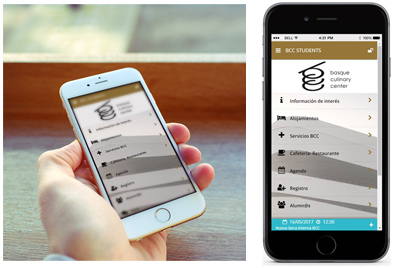
During their study years, BCC students will have access to the BCC Student APP. Through this APP students will be informed about grants and scholarships, job opportunities, extracurricular learning opportunities, events, invitations to exclusive Master Classes... They will also be informed on student discounts, BCC Cafeteria or Restaurant reservations, transportation, etc.
BCulinary Alumni
You can access all the information in the following link.

